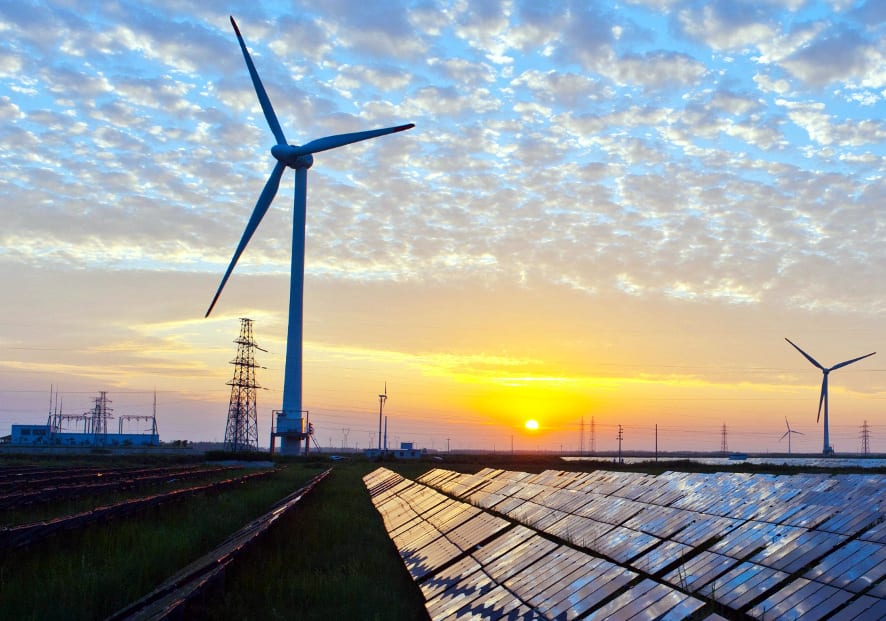
TPA Signs Letter Urging Senate Majority Leader McConnell to end the Production Tax Credit
Taxpayers Protection Alliance
October 23, 2020
October 22, 2020
The Honorable Mitch McConnell
Senate Majority Leader
317 Russell Senate Office Building
Washington DC 20510
CC: Senator John Thune, Senator John Barrasso, Senator Roy Blunt, Senator Joni Ernst, Senator Todd Young, Senator Chuck Grassley, Senator Mike Crapo, Senator Pat Roberts, Senator John Cornyn, Senator Richard Burr, Senator Rob Portman, Senator Tim Scott, Senator Bill Cassidy, Senator Steve Daines, Senator Ben Sasse, Senator Kevin Cramer, Senator Shelley Moore Capito, Senator Lamar Alexander, Senator John Hoeven, Senator Michael Enzi, Senator James Lankford, Senator Pat Toomey, Senator James Inhofe
Dear Majority Leader McConnell:
After a dozen extensions and nearly three decades on the books, it’s time to end the Production Tax Credit.
The Production Tax Credit (PTC) for wind energy was created in the Energy Policy Act of 1992. The PTC provides wind energy companies with a tax credit per kilowatt-hour of renewable electricity generation for the first 10 years a facility is in operation. The PTC was originally scheduled to expire in the year 1999, but Congress has extended its lifespan repeatedly, most recently at the end of 2019. Our coalition urges you to make that extension the last concession to the wind lobby.
Ending the wind PTC is an important energy policy course correction. First, it is pro-taxpayer. Since it was created in 1992, taxpayers have sent billions of dollars in credits to large multinational corporations in the wind industry. The U.S. Treasury estimates that the Production Tax Credit will cost taxpayers $40.12 billion from 2018 to 2027. With its most recent extension, the PTC will keep wind on the federal dole well into the 2030s.
Second, it is pro-consumer. Since wind is an unreliable intermittent source of energy, it requires extensive back-up from power sources like combined cycle natural gas. But keeping natural gas on standby means operation is less efficient than it otherwise would be, causing higher costs for ratepayers. Despite the rhetoric about falling costs, existing natural gas power plants and coal power plants are far more affordable than new wind generation. On a dollar per kilowatt-hour basis and including the imposed costs, new wind power generation is twice as expensive as existing natural gas power.
Third, Americans deserve reliable power. With a natural bounty of energy resources, Americans have only self-imposed imbalances to fear. Flooding the grid with intermittent wind generation makes blackouts like California recently experienced a looming threat to all Americans. The PTC creates a false signal that makes California-style blackouts more likely in future.
Rather than having the fingers of Congress tipping the scales, our power sector should follow the wisdom of the market, providing the most reliable possible service at the lowest possible cost. In some regions, such as the windy Great Plains, market conditions will support wind’s role in the energy mix. In regions lacking geographic advantages, such as the South, wind may have little role. A Congressional carveout for wind confuses the market and creates artificial incentives.
In fact, the wind lobby itself has suggested the PTC has run its course. In 2016, Tom Kiernan, CEO of the American Wind Energy Association, stated that “wind is now the cheapest source of new electric generating capacity” in many parts of the United States. Kiernan is also fond of implying that the wind industry is getting out of the federal subsidy business altogether, such as in 2017 when he said “we made a deal to drop our tax credit to zero over five years.” Likewise, on a 2018 earnings call, James Robo, CEO of NextEra Energy, predicted that within a decade the cost of wind generation would be more competitive “without incentives” than sources like natural gas and coal. Yet here we are in late 2020, with the wind industry mustering considerable funding to lobby for more taxpayer aid.
Despite the billions of dollars drained from taxpayers and the state mandates that force utilities to prioritize it, wind power makes up just 7 percent of U.S. electricity generation today. The PTC has run its course. Tempting though it may be, Congress should not fall prey to the sunk cost fallacy. Though billions of dollars have been squandered already, we urge Congress to cut off the wind welfare tap.
Sincerely,
Tom Pyle
American Energy Alliance
Bethany Marcum
Alaska Policy Forum
Lisa B. Nelson
ALEC Action
Phil Kerpen
American Commitment
Rick Manning
Americans for Limited Government
Brent Wm. Gardner
Americans for Prosperity
Grover Norquist
Americans for Tax Reform
Daniel F. Schmid
Bohemian Alps Wind Watchers
Robert Alt
Buckeye Institute
David T. Stevenson
Caesar Rodney Institute
Ryan Ellis
Center for a Free Economy
Andrew F. Quinlan
Center for Freedom and Prosperity
Jeffrey Mazzella
Center for Individual Freedom
Isaac Orr
Center of the American Experiment
Thomas Schatz
Council of Citizens Against Government Waste
Leo Knepper
Citizens Alliance of Pennsylvania
Mark Mathis
Clear Energy Alliance
Caleb Stewart Rossiter
CO2 Coalition
Craig Rucker
Committee For A Constructive Tomorrow
Myron Ebell
Competitive Enterprise Institute
Matthew Kandrach
Consumer Action for a Strong Economy
E. Calvin Beisner
Cornwall Alliance
Craig Richardson
Energy & Environment Legal Institute
Adam Brandon
FreedomWorks
George Landrith
Frontiers of Freedom
James Taylor
Heartland Institute
Jessica Anderson
Heritage Action for America
Fred Birnbaum
Idaho Freedom Action
Andrew Langer
Institute for Liberty
Brett Healy
John K. MacIver Institute for Public Policy
Donald van der Vaart
John Locke Foundation
Seton Motley
Less Government
Jason Hayes
Mackinac Center for Public Policy
Matthew Gagnon
Maine Policy Institute
Jonathan Small
Oklahoma Council of Public Affairs
Derrick Hollie
Reaching America
Mike Stenhouse
Rhode Island Center for Freedom & Prosperity
Paul J. Gessing
Rio Grande Foundation
Bette Grande
Roughrider Policy Center
David Williams
Taxpayers Protection Alliance
Jason Isaac
Texas Public Policy Foundation
